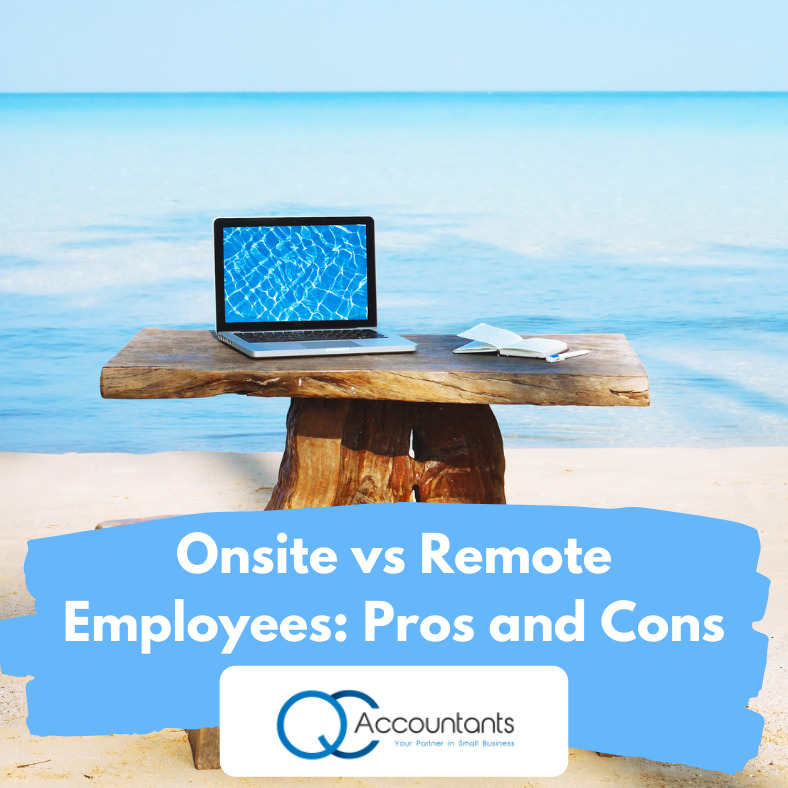It’s often a difficult decision for businesses to make. Do they hire onsite employees, or do they hire remote employees? There are many factors to take into consideration when making this decision. Below we’ll explore the differences between hiring onsite vs remote employees and which option is likely going to work for your business.
Onsite employees
When considering the structure of your business you need to consider the work culture you’re trying to create. If you’re striving for an inclusive environment where everyone feels valued then onsite employees may be the best choice as they have easy access to colleagues in person and can work together face-to-face. More ideas and creativity may also brew among your staff, as they have a chance to talk with each other in person.
However, onsite workers are more expensive from the get-go as they require a larger initial investment in equipment, training and other costs associated with having them on your payroll.
Remote employees
On the other hand, remote employees can be cheaper in terms of hiring costs per hour as they need less equipment or space than an onsite employee would – which is a huge cut down on your expenses. As your company grows, you won’t need to expand the size of your office. You’ll just continue hiring remote employees who can work from anywhere with an internet connection.
With the development of online communication technologies like Zoom, remote workers are also able to collaborate like never before. Additionally, there’s the idea that because remote employees are able to work at a time of day or in an environment where they’re most productive, your business can get the best output from its employees.
In conclusion
As mentioned before, it’s important to think about what kind of work culture you’re trying to create. If collaboration among staff members is critical then onsite employees might be best since they can work face-to-face and have easy access to colleagues. On the other hand, remote employees might be better if you’re trying to create a more flexible working environment for your staff or need people who are available around the clock.
In conclusion, when deciding whether or not to hire onsite vs remote employees it’s important to take into consideration all of the financial benefits that come with either option as well as the culture you want to foster at work. The financial differences between hiring onsite or remote employees will vary depending on your company’s needs but it is important to take all factors into consideration before deciding what option would be best for your bottom line.
If you need help determining which options are right for you, get in touch with us today.








